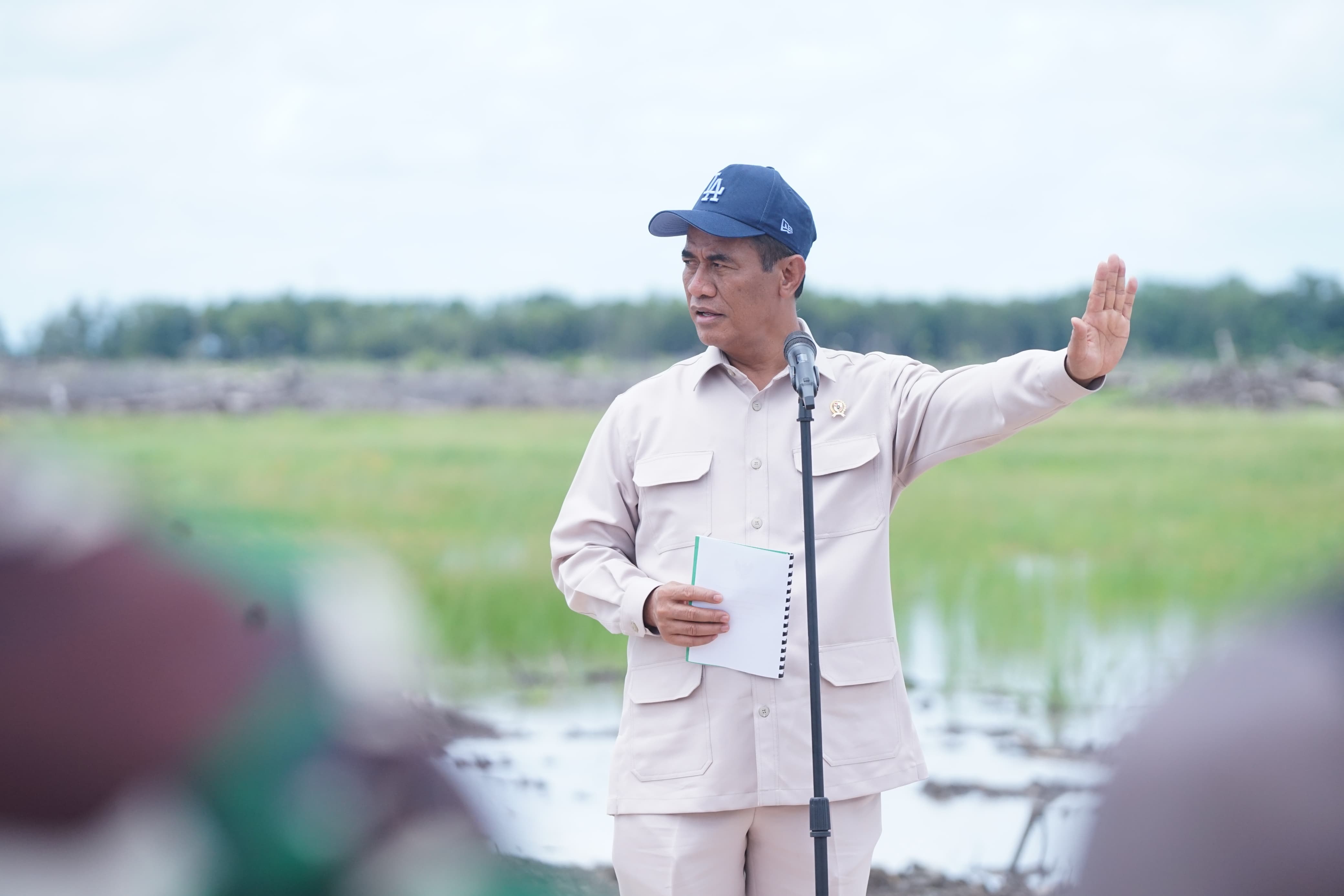REPUBLIKA.CO.ID, JAKARTA -- In anticipation of the threat of a global food crisis triggered by climate change and distribution instability, Minister of Agriculture (Mentan) Andi Amran Sulaiman reiterated the importance of Indonesia accelerating rice self-sufficiency while strengthening national food reserves. According to him, food emergencies in Japan, Malaysia, and the Philippines are an alarm for Indonesia to act quickly in maintaining food security
Mentan highlighted the recent policy of the Japanese Government which, for the first time in history, released 210 thousand tons of rice from an emergency reserve of one million tons, as a result of extreme price spikes.
“The increase in rice prices in Japan reached 82 percent in a year, from 2,023 yen/kg (IDR 215,423) to 3,688 yen/kg (Rp 393 thousand). It's the direct impact of extreme heat waves that is damaging production and disrupting distribution. This condition can happen anywhere if the country does not have adequate food reserves,” said Amran, in an official statement, quoted Friday (21/2/2025).
In Malaysia, the scarcity of local rice is sparking panic in the community. The thinning supply led to a spike in prices, while higher imported rice prices further weighed on the people.
“Conditions in Malaysia suggest that disruption of food stocks can lead to social insecurity. Food is not only a necessity, but also a factor in the stability of the country,” Amran said.
On social media, the wave of protests from Malaysians is indeed on the rise. Citizens demanded real action from the government to address this crisis, and reduce dependence on imported rice. Previously, the Philippines had established a food security emergency status since early February 2025 after rice inflation reached 24.4 percent. That's the highest number in 15 years.
“Countries that rely on rice imports such as the Philippines and Malaysia are particularly vulnerable when global supplies are disrupted. It becomes a valuable lesson that reliance on imports is not a long-term solution. Indonesia must strengthen domestic production,” Amran said.
The World Food Agency (FAO) reports that more than 864 million people in the world will experience severe food insecurity by 2024, with Asia and Africa as the main affected regions. Climate change, conflict, and economic instability are named as the main triggers.
“This is not just a warning, but real evidence that food is a strategic issue. Indonesia must ensure food security from now on,” Mentan Amran said.
Based on data from the Indonesia Central Statistical Agency (BPS) as of February 2025, the price of medium rice in Indonesia is stable in the range of Rp 13 thousand-IDR 14 thousand/kg, lower than the peak price in 2024, which briefly reached Rp 16 thousand/kg. Still according to BPS, in February 2024, rice prices in Indonesia rose and set record highs throughout history. The price of rice at the milling level in February 2024 was recorded at the level of Rp 14,274/kg.
“These conditions serve as a reminder that without sufficient reserves and strong stabilization mechanisms, we could face larger price spikes in the future,” Amran said.
In order to maintain the stability of rice supply and prices, President Prabowo Subianto has instructed Perum Bulog to immediately absorb 3 million tons of rice from farmers with a grain HPP benchmark of Rp 6,500/kg and buy rice of Rp 12 thousand/kg in order to maintain the spirit of farmers to continue producing.
The Ministry continues to promote synergies with other ministries and local governments to ensure smooth rice distribution and minimal leakage. Amran insists rice self-sufficiency is not just a target, but a necessity for the nation's independence.
Previously, the National Food Agency/National Food Agency (NFA) ensured the stock of the Government Rice Reserve (CBP) managed by Perum Bulog remained in place for 2025. This comes on top of the hard work of the government that has guaranteed the availability of CBP stockpiles since the previous year.
NFA chief Arief Prasetyo Adi said the policy was a form of government preparedness in the face of potential price turbulence and food conditions in the coming year.
“Since then, the Government of Indonesia has prepared a CBP management strategy to keep supplies secure. With a stock of 2 million tons prepared since 2024, we are optimistic that people's needs can be met, especially in the face of food-prone periods such as the beginning of the year and the peak period,” Arief said in his statement, quoted Tuesday (17/2/2025) in Jakarta.
As is known, CBP stocks stored at Bulog in early 2025, which is a stock transfer from 2024, are recorded to be 2 million tons. While based on the projected national food balance, national rice stocks in early 2025 were also quite strong at 8.148 million tons.
“With an adequate stock of Indonesian rice as today, the Indonesian Government is ready to welcome Ramadan and Idulfitri, which also coincide with the rice harvest season. We are confident that there will be no meaningful turbulence to the rice commodity,” Arief said.
The statement by NFA Chief Arief Prasetyo Adi was to ensure favorable conditions for rice in Indonesia, following the announcement of a food emergency against rice that the Philippines issued on February 3. The declaration was issued by The Department of Agriculture to address the spike in rice prices there.


